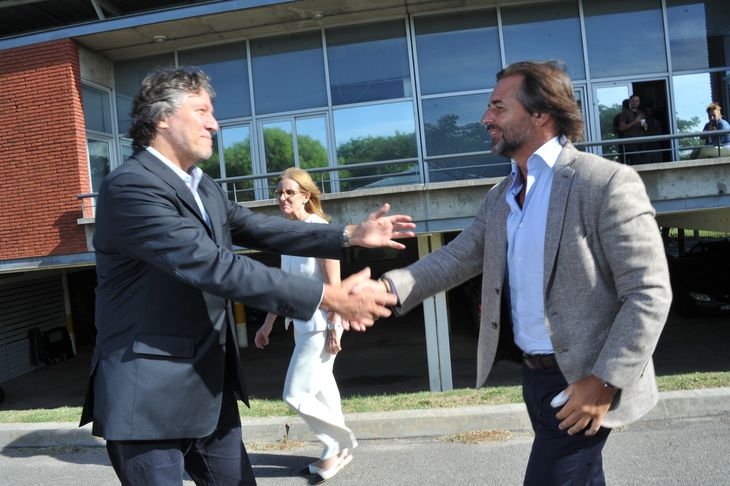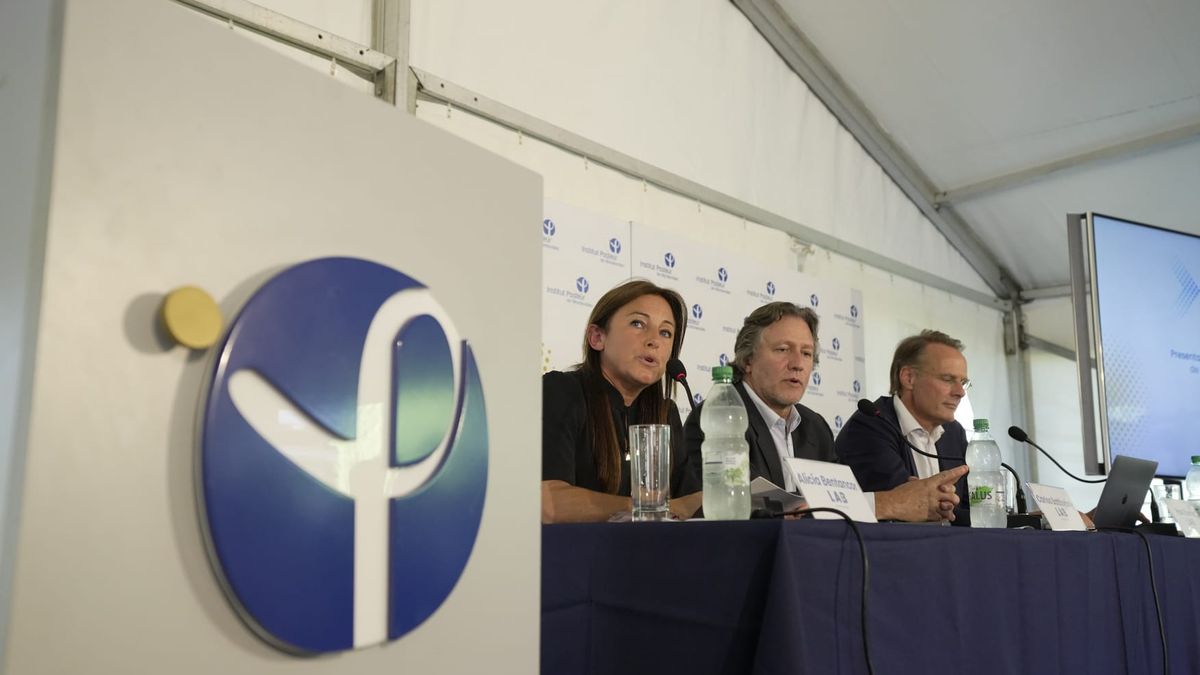LAB+, the company builder of Pasteur Institute of Montevideo which seeks to create private companies based on scientific knowledge generated in the country, presented the closing of its first capitalization round and the first four startups that will be financed with that fund, through which each one will receive $750,000 for a period of two years.
The objective of LAB+ is to support scientists who have disruptive ideas in medicine, biology and technology and that are aimed at improving the well-being of human beings, animals and the environment, so that they can then be transformed into sustainable international companies.
The startups financed with this first round of capitalization are Guska (created by Gonzalo Moratorio and Pilar Moreno), B4RNA (by Juan Pablo Tosar), Scaffold Biotech (Agustín Correa and Matías Machado) and LoCBio (designed by Felipe Trajtenberg).
“The LAB+ aims to be a virtuous space for the transformation and valorization of scientific-technological knowledge that, arising from science, allows the creation of world-class scientific-technological-based companies,” he told Scope Carlos Batthyány, director of the Pasteur Institute and head of LAB+.
Luis Lacalle Pou Lab+.jpg
Innovation and growth
“In addition, it is intended to be a proof of concept that Uruguay It can also be supported by science to begin to grow at rates comparable to those of the first world, to begin to converge and no longer distance itself from developed countries,” he added. Batthyány.
Along these lines, he observed: “Today the currency of exchange is in the countries that are going to grow faster, that are going to develop more. The system of wealth distribution It is another problem, but the countries that are going to grow at the fastest rates are the ones that are definitively betting on investigation Yet the innovation and to the generation of new knowledge.”
“What must be very clear is that they start the school, follow the university, follow the research institutes and then continue with this public-private partnership that must always be virtuous, where the academy gives its own and the private gives. theirs to generate new wealth for the country,” concluded the director of the Pasteur Institute.
Ficus Advisory foresees more investments
For your part Paul Elberse, CEO of Ficus Advisory, He said that this will surely be “the first of a series of funds that will total 25 million dollars, investing the first 5 million in this first stage.”
“In about 12 months we can raise 5 million more to continue investing with these startups and choose more. The idea is to invest in a total of 12 to 16 companies over a period of 3 to 4 years. And in a period of 18 to 24 months, raise the remaining 15 million to close the fund and invest in the whole,” explained the businessman.
“We are also willing to support financial management, generate more interactions with investors and give moral support to scientists when business issues seem a little more difficult than they really are,” Elberse said.
They were at the event in addition to the President of the Republic, Luis Lacalle Pou; and the Minister of Industry, Energy and Mining, Elisa Facio; representatives of the National Innovation Agency (Anni), the Inter-American Development Bank, Uruguay Innovation Hub and University of the Republic among others.
Lacalle Pou, Batthyány.jpg

The projects
As a result of the first international call for interested researchers, LAB+ selected the first four projects that will receive funding:
B4RNA proposes to develop a new diagnostic methodology for the early detection of cancer. It is based on the discovery of a new type of RNA molecules and the development of a method that allows them to be detected in biological fluids (blood, urine, etc.).
Founding scientist: Juan Pablo Tosar.
Guska uses genetic engineering to design and produce viruses to destroy tumor cells. In this way, treatments can be developed to combat different types of cancer.
Founding scientists: Gonzalo Moratorio and Pilar Moreno.
LoCBio develops a technology that allows cells to be reprogrammed so that they can execute tasks safely and efficiently. The objective is to provide cells with a biocomputing system that processes specific information and responds to achieve development biotherapeutic.
Founding scientist: Felipe Trajtenberg.
Scaffold Biotech applies protein engineering to the design of new molecules in order to create vaccines more effective. It focuses on offering solutions to problems of great impact on animal health, such as ticks.
Founding scientists: Agustín Correa and Matías Machado.
Source: Ambito




